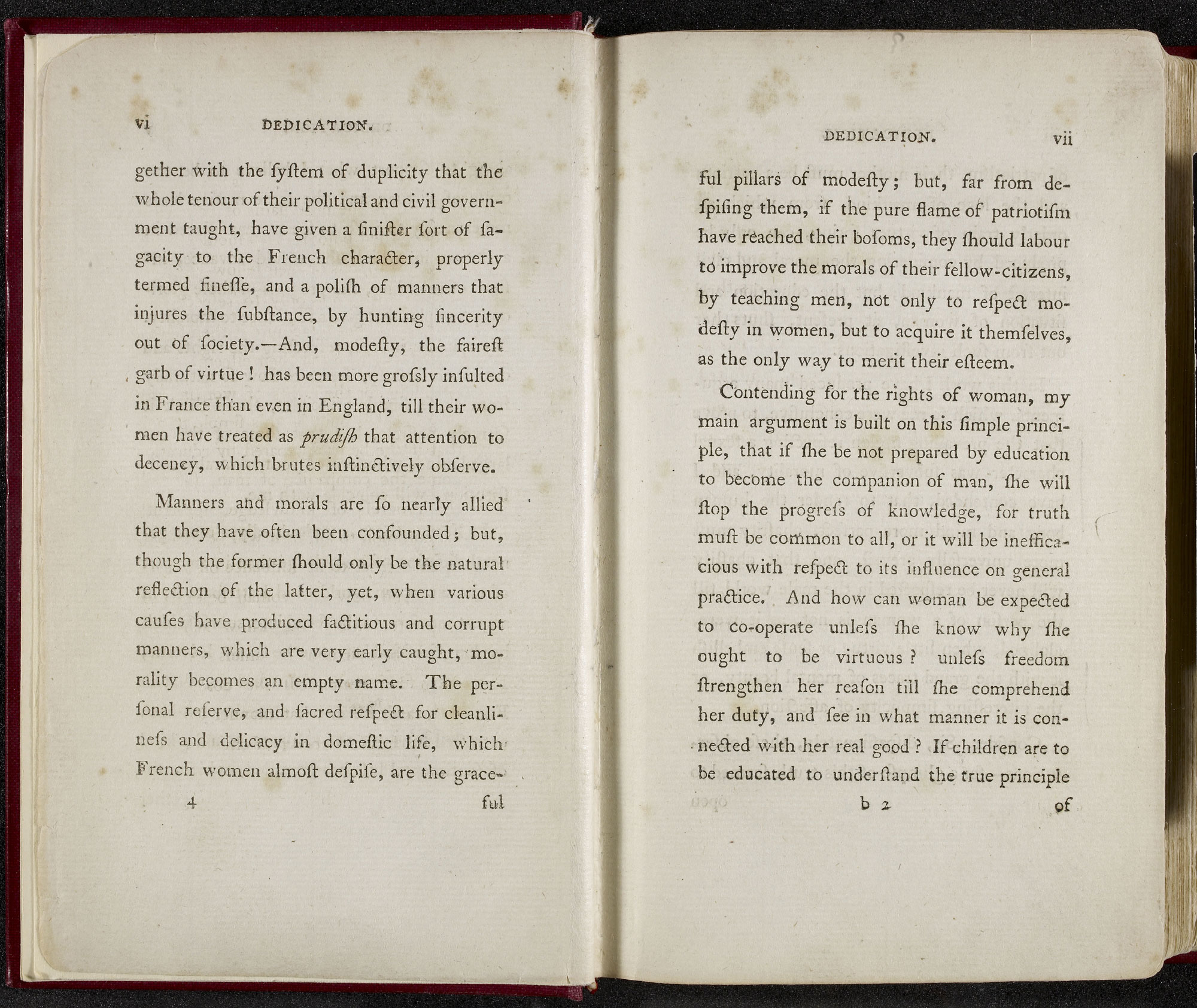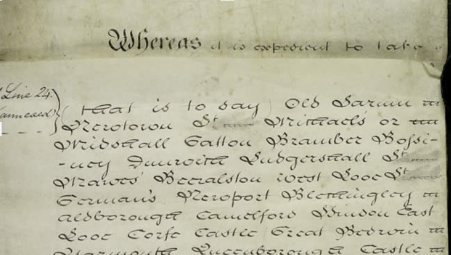Drawing for Suffrage
Origins: Early Efforts
1792

A Vindication of the Rights of Women, Mary Wollstonecraft, 1792, British Library
Mary Wollstonecraft's A Vindication of the Rights of Women encouraged efforts to grant women's suffrage.
“I do not wish them [women] to have power over men; but over themselves.”
~ Mary Wollstonecraft, A Vindication of the Rights of Women, 1792
“My own sex, I hope, will excuse me, if I treat them like rational creatures, instead of flattering their fascinating graces, and viewing them as if they were in a state of perpetual childhood, unable to stand alone.”
~ Mary Wollstonecraft, A Vindication of the Rights of Women, 1792
1832

Reform Act of 1832, British Library
The 1832 Great Reform Act explicitly disenfranchised women by replacing ‘person’ with 'male' to extend suffrage to 18% more men.
"[A]ll those individuals whose interests are indisputably included in those of other individuals may be struck off without any inconvenience ... In this light also women may be regarded, the interests of almost all of whom are involved in that of their fathers or in that of their husbands."
~ Great Reform Act, 1832
1867
Member of Parliament John Stuart Mill, 1866, Parliament UK
John Stuart Mill revived national attention to women's suffrage; his effort to amend the 1867 Reform Bill to lift the ban on women voting failed.
“[T]he principle which regulates the existing social relations between the two sexes—the legal subordination of one sex to the other—is wrong in itself, and now one of the chief hindrances to human improvement.”
~ John Stuart Mill, The Subjection of Women, 1869
Mill argued that disenfranchising women created a barrier to social progress.
88.5 FM Youngstown State University Radio